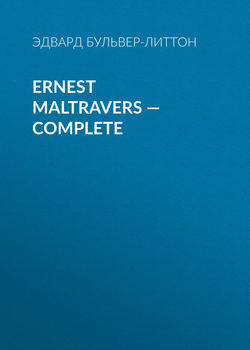Читать книгу Ernest Maltravers — Complete - Эдвард Джордж Бульвер-Литтон, Эдвард Бульвер-Литтон - Страница 2
PREFACE TO THE EDITION OF 1840
ОглавлениеHOWEVER numerous the works of fiction with which, my dear Reader, I have trespassed on your attention, I have published but three, of any account, in which the plot has been cast amidst the events, and coloured by the manner, of our own times. The first of these, Pelham, composed when I was little more than a boy, has the faults, and perhaps the merits, natural to a very early age,—when the novelty itself of life quickens the observation,—when we see distinctly, and represent vividly, what lies upon the surface of the world,—and when, half sympathising with the follies we satirise, there is a gusto in our paintings which atones for their exaggeration. As we grow older we observe less, we reflect more; and, like Frankenstein, we dissect in order to create.
The second novel of the present day,1 which, after an interval of some years, I submitted to the world, was one I now, for the first time, acknowledge, and which (revised and corrected) will be included in this series, viz., Godolphin;—a work devoted to a particular portion of society, and the development of a peculiar class of character. The third, which I now reprint, is Ernest Maltravers,2 the most mature, and, on the whole, the most comprehensive of all that I have hitherto written.
For the original idea, which, with humility, I will venture to call the philosophical design of a moral education or apprenticeship, I have left it easy to be seen that I am indebted to Goethe’s Wilhelm Meister. But, in Wilhelm Meister, the apprenticeship is rather that of theoretical art. In the more homely plan that I set before myself, the apprenticeship is rather that of practical life. And, with this view, it has been especially my study to avoid all those attractions lawful in romance, or tales of pure humour or unbridled fancy, attractions that, in the language of reviewers, are styled under the head of “most striking descriptions,” “scenes of extraordinary power,” etc.; and are derived from violent contrasts and exaggerations pushed into caricature. It has been my aim to subdue and tone down the persons introduced, and the general agencies of the narrative, into the lights and shadows of life as it is. I do not mean by “life as it is,” the vulgar and the outward life alone, but life in its spiritual and mystic as well as its more visible and fleshly characteristics. The idea of not only describing, but developing character under the ripening influences of time and circumstance, is not confined to the apprenticeship of Maltravers alone, but pervades the progress of Cesarini, Ferrers, and Alice Darvil.
The original conception of Alice is taken from real life—from a person I never saw but twice, and then she was no longer young—but whose history made on me a deep impression. Her early ignorance and home—her first love—the strange and affecting fidelity that she maintained, in spite of new ties—her final re-meeting, almost in middle-age, with one lost and adored almost in childhood—all this, as shown in the novel, is but the imperfect transcript of the true adventures of a living woman.
In regard to Maltravers himself, I must own that I have but inadequately struggled against the great and obvious difficulty of representing an author living in our own times, with whose supposed works or alleged genius and those of any one actually existing, the reader can establish no identification, and he is therefore either compelled constantly to humour the delusion by keeping his imagination on the stretch, or lazily driven to confound the Author in the Book with the Author of the Book.3 But I own, also, I fancied, while aware of this objection, and in spite of it, that so much not hitherto said might be conveyed with advantage through the lips or in the life of an imaginary writer of our own time, that I was contented, on the whole, either to task the imagination, or submit to the suspicions of the reader. All that my own egotism appropriates in the book are some occasional remarks, the natural result of practical experience. With the life or the character, the adventures or the humours, the errors or the good qualities, of Maltravers himself, I have nothing to do, except as the narrator and inventor.
E. B. L.
1
For The Disowned is cast in the time of our grandfathers, and The Pilgrims of the Rhine had nothing to do with actual life, and is not, therefore, to be called a novel.
2
At the date of this preface Night and Morning had not appeared.
3
In some foreign journal I have been much amused by a credulity of this latter description, and seen the various adventures of Mr. Maltravers gravely appropriated to the embellishment of my own life, including the attachment to the original of poor Alice Darvil; who now, by the way, must be at least seventy years of age, with a grandchild nearly as old as myself.
